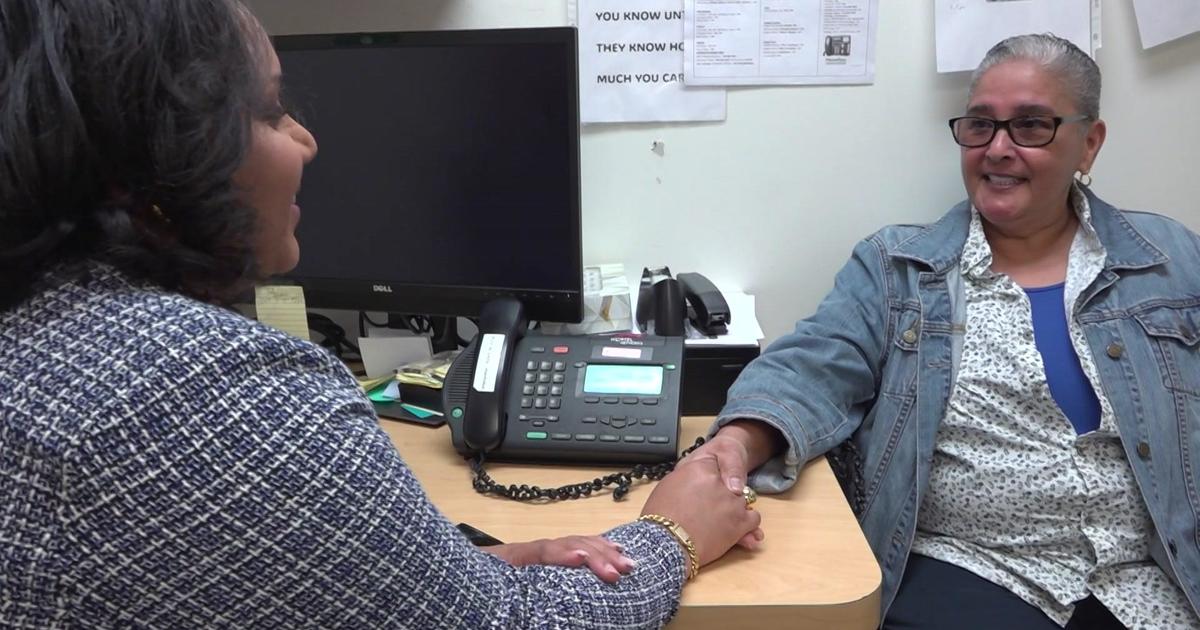City Regulators Scope Out Popular At-Home Pet Boarding Apps
NEW YORK (AP) — Fur is flying over pet-sitting in New York City, where regulators are sniffing around apps that connect owners with people who take animals into their homes for pay.
Health regulators are trying to reinforce a longstanding rule against the practice, a leading app is pushing back, and a city councilman is pondering the issue. And anxious pet sitters are wondering what to tell clients.
"I don't know what to do," says Tanoopa Jaikaran, who left a marketing job last year to start a dog-walking and pet-sitting business.
She does most of her sitting in clients' own homes but she'd agreed to take a pet or two during upcoming holidays to her three-family Bronx house, where the animals can have their own apartment.
DogVacay Finds Someone To Take Care Of Your Dog While You're Away
"We want to do everything the right way," she said, but "it's a really hard pill to swallow right now."
In New York and elsewhere, pet-boarding rules have gotten new attention with the rise of apps. The popular Rover and a former rival, DogVacay, were among the top five highest-funded "pet tech" startups in the last five years, according to CB Insights, which tracks venture capital.
Just last month, Democratic Colorado Gov. John Hickenlooper signed a law letting people board as many as three pets without a license. The sponsors, Republican Rep. Lois Landgraf and Democratic Rep. Dan Pabon, said constituents had been stunned to learn they needed licenses to board pets even occasionally.
"It's not realistic to think that somebody who may not make $400 a year pet-sitting has to have a $400 license, compared to somebody who runs a full-blown dog day care and grooming facility," says Landgraf, a Colorado Republican.
Similarly, California lawmakers last year limited the state's first pet-boarding regulations to facilities hosting four or more animals.
New York City health officials, on the other hand, have proposed to tweak regulations to make the city's in-home pet boarding ban all the more clear. The policy, discussed at a health department hearing this week, doesn't apply to pet-sitting an animal in its own pad or watching someone's pet for free as a favor.
The years-old prohibition isn't actively policed; enforcement is driven by complaints. Statistics weren't available from the Health Department this week.
State Sen. Tony Avella, a Democrat who contacted the city health department last year about pet-sitting apps, says people who advertise and charge for pet care should have to meet licensing standards.
And in a city of apartment-dwellers, health department lawyer Thomas Merrill says residents "have a right not to have someone next door with a bunch of animals coming in." As the Daily News first reported, he told DogVacay in October that its at-home boarders were breaking the law and could be fined.
Rover, which has since acquired DogVacay, says it's unfair to require more of pet sitters than baby sitters and to deprive pet owners of an option that many prefer to a kennel, especially for aged or disabled animals.
"Rover did not invent pet sitting; we simply make it safer with peer reviews, 24-hour safety support and pet sitter screening," said company lawyer John Lapham. He says he's optimistic about reaching "a sensible compromise" with New York regulators.
City Council health committee chairman Corey Johnson, a Democrat, is looking at whether to propose changing the rules.
Proprietors of pet-boarding facilities say it is unfair to let others get into the business without following the same rules.
Tammy Karecki took a city-required course to get a permit, pays thousands of dollars in rent and collects sales tax for her Manhattan dog day care and training center, Star Paws.
"I have to do it, so I think everybody should have to do it," said Karecki, a longtime dog trainer who worries that the do-it-yourself app atmosphere may attract inexperienced pet boarders.
Whatever the setting, the Humane Society of the United States advises pet owners to check references and meet prospective caregivers in person, spokeswoman Vicki Stevens said.
Jaikaran, meanwhile, says she's determined to figure out a solution.
"We do this because we love it," she said as she walked, cajoled and encouraged a client's 10-year-old, arthritic dog on lower Manhattan streets this week.
(© Copyright 2017 The Associated Press. All Rights Reserved. This material may not be published, broadcast, rewritten or redistributed.)



